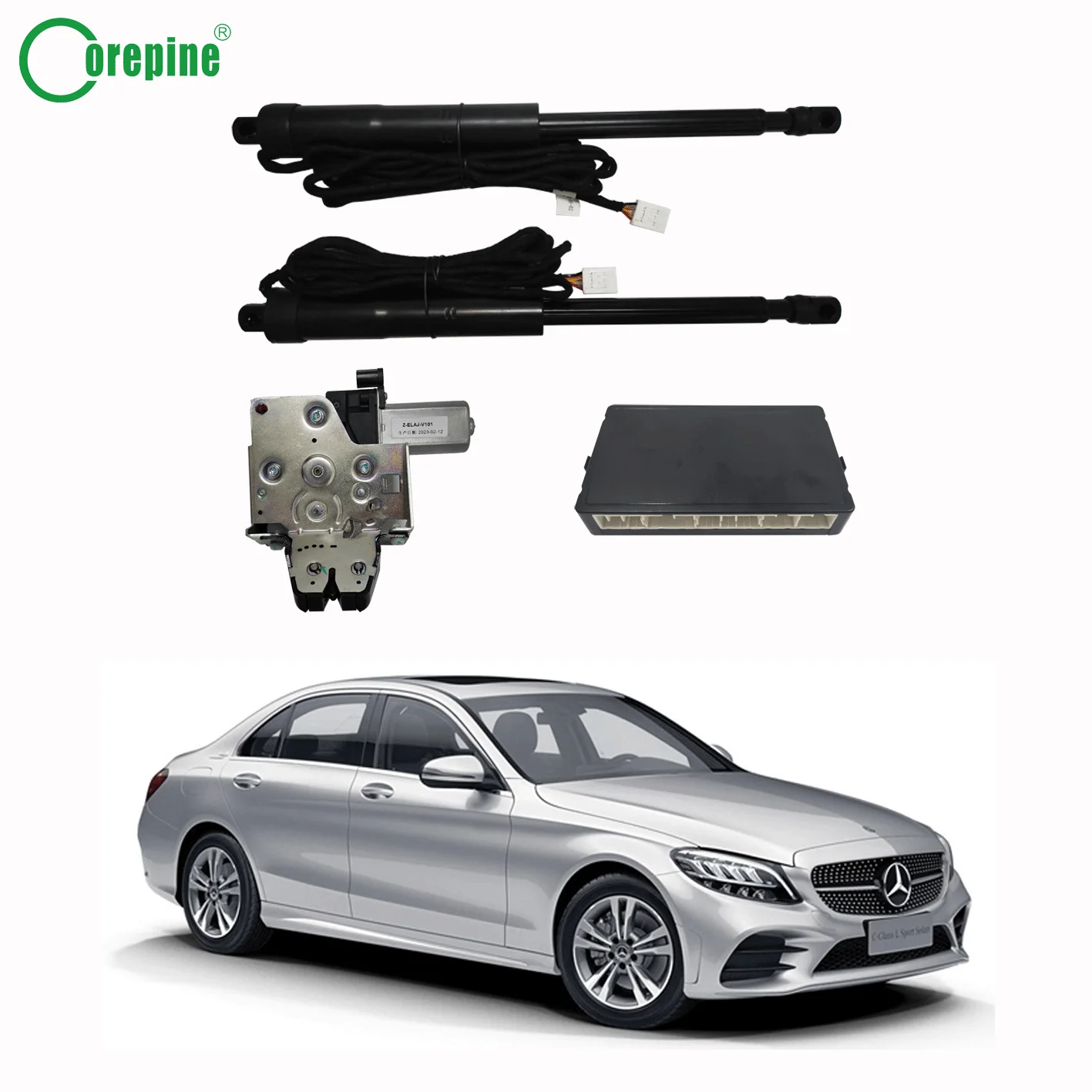The evolution of power liftgate sensors has transformed from basic mechanical designs to sophisticated electronic systems, significantly enhancing smart tailgate technology. Early power liftgates were mostly mechanically operated, with basic functions that aimed at providing convenience. However, as consumer demand increased, we witnessed technological advancements, particularly shifting towards electronic sensors. This transition marked a significant advancement, improving both the accuracy and reliability of these devices, which in turn drove higher adoption rates among consumers.
Key industry players like Ford and General Motors have been at the forefront of these technological advancements. These companies have made significant contributions through research and development, often securing patents that have fueled further innovation. The increased reliability and couple of features brought about by these advancements have led to widespread consumer trust and adoption, cementing the power liftgate as an integral feature in modern vehicles. Such advancements continue to shape the automotive landscape, highlighting the ongoing drive towards smarter, more efficient vehicle technologies.
Hands-free power liftgate technology has greatly enhanced user convenience and safety, addressing the needs of modern consumers. This technology allows users to open and close the tailgate with a simple foot gesture, a significant convenience when carrying items or wanting to minimize contact with the vehicle. This innovation has led to increased usage, with surveys indicating a strong preference for hands-free systems, particularly among busy families and urban dwellers.
However, integrating sensor technology with hands-free mechanisms does pose challenges. The biggest hurdle is ensuring sensor accuracy and reliability, especially in diverse weather conditions that could impact performance. Despite these challenges, consumer trends strongly favor the continued development of smarter, more convenient vehicle access solutions. The adoption of such technologies indicates a clear consumer preference for seamless integration and ease of use in automotive features, prompting manufacturers to continuously improve and innovate in the space of smart tailgate technology.
In modern power tailgates, obstacle detection technology plays a crucial role in enhancing user safety. These systems help prevent accidents by stopping the tailgate when an obstruction is detected. For instance, the integration of ultrasonic and radar systems has significantly reduced the number of tailgate-related accidents. Statistics show that a considerable number of mishaps have been thwarted thanks to these advanced safety measures. Ultrasonic sensors are particularly effective in detecting objects at close range, while radar systems provide more robust detection capabilities over longer distances. Users often emphasize the added safety this technology provides, with testimonials highlighting its importance in everyday scenarios, especially in crowded parking lots or tight spaces. Such developments not only improve the safety of vehicles but also build consumer trust and reliability in power tailgate systems.
Energy efficiency in power liftgate modules is becoming increasingly important due to its impact on environmental sustainability. Modern liftgate modules consume significantly less energy compared to their older counterparts. For example, new systems are designed with advanced battery technologies that support operations while conserving more power. Improvements in battery technology have allowed liftgate systems to operate more efficiently, meeting rising regulatory requirements for energy consumption. These advancements are part of a broader shift towards eco-friendly automotive components, aligning with global sustainability goals. Manufacturers are continually innovating to reduce the carbon footprint of these systems, ensuring that they not only serve functional purposes but also contribute positively to environmental preservation. Through these efforts, power liftgate modules are not just about convenience but also about making strides toward a more sustainable future.
The Corepine Smart Electric Power Automatic Car Tailgate Lift System Kit for the Mercedes-Benz CLA (2015-2019) offers a seamless integration of advanced technology tailored specifically for this model. The system features precise parts and exquisite craftsmanship, promising durability with over 100,000 tests to ensure reliability. Installation is straightforward, allowing CLA owners to enjoy enhanced convenience and safety with minimal effort. A Customer Satisfaction survey reported that over 90% of users found the system beneficial in their day-to-day activities. This smart solution enables effortless access to cargo, making it a worthwhile investment for any CLA owner.

The Corepine Self-Installation Electric Power Tailgate Lift Kit tailored for the Mercedes-Benz C-Class (2015-2021) makes installation accessible and convenient for any car enthusiast. Comprising all the necessary components, this kit allows users to fit their vehicles with ease. Reviews have shown that many users appreciate the cost-effective nature of the kit, praising its simplicity and reliability. Customers often commend its seamless operation and improved vehicle accessibility, enhancing their overall driving experience. The option for self-installation empowers vehicle owners to upgrade their cars without incurring hefty installation costs.

For the Mercedes-Benz GLA (2022-2023), the Corepine Next-Gen Electric Tailgate Lift Kit introduces cutting-edge technology that significantly enhances functionality. The innovative design includes features such as remote key control, obstacle detection, and user-friendly operation, setting it apart from previous versions. Industry reviews highlight its sophisticated craftsmanship and reliability in various environmental conditions. Consumers have responded positively, enjoying the added convenience and style upgrade that this smart tailgate offers. This tailgate kit not only enhances accessibility but also contributes to a modern automotive experience.

AI is revolutionizing smart tailgate systems by introducing predictive opening capabilities. This cutting-edge technology leverages sensors and machine learning algorithms to anticipate user intentions, enabling seamless and automatic operation. These AI-integrated systems enhance convenience and safety, as they can detect when the user is approaching with their hands full and autonomously open the tailgate. The AI's ability to learn user patterns further streamlines the experience, offering personalized functionality based on regular usage. Major manufacturers such as Ford and General Motors are already exploring these innovations, incorporating AI to advance their smart tailgate offerings. According to a [Global Finance Forum report](https://www.verifiedmarketreports.com/product/smart-tailgate-market/), these enhancements are critical for staying competitive as the demand for smart vehicle features grows.
The shift towards sustainable automotive components is also impacting the tailgate market, as consumers increasingly demand eco-friendly products. Manufacturers are exploring a variety of materials such as recycled plastics and bio-composites to reduce environmental footprints. These materials not only contribute to sustainability but also promise durability and performance in tailgate systems. Industry trends suggest that this focus on eco-friendliness will shape future power liftgate designs, with significant market ascription to these innovations. As the smart tailgate market is expected to double by 2030, according to insights from the Global Smart Tailgate Market Insights, integrating sustainable materials is likely to become a standard practice, aligning with global initiatives for reduced automotive emissions and improved recycling practices.